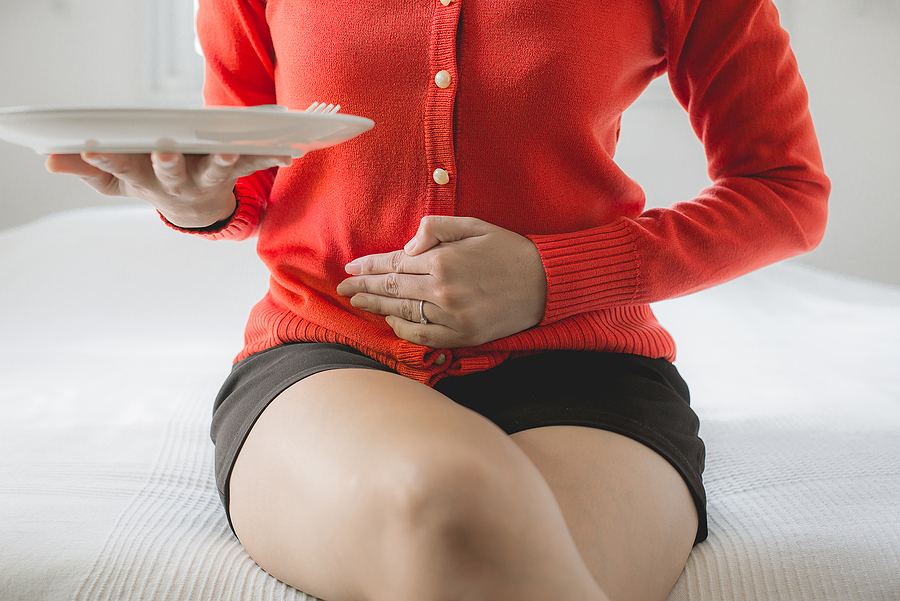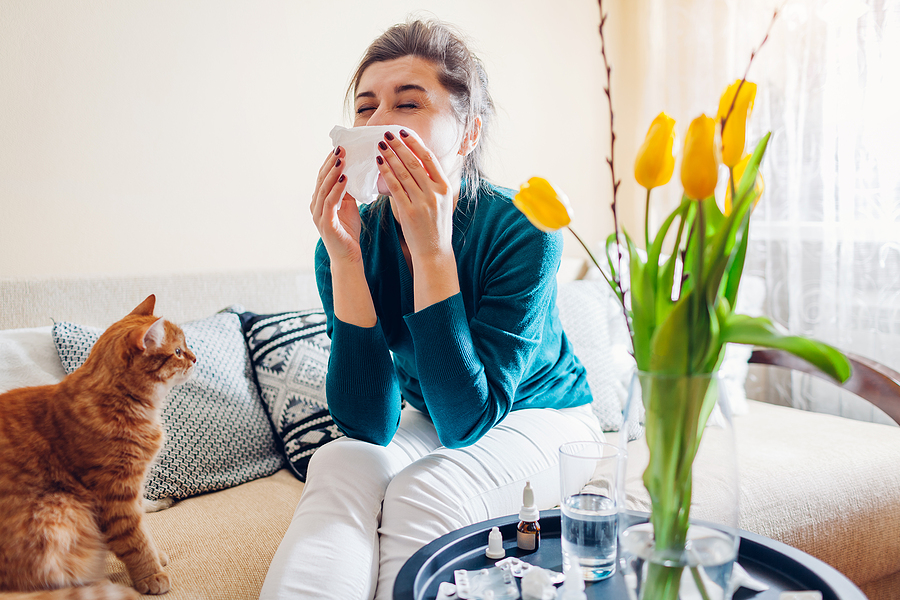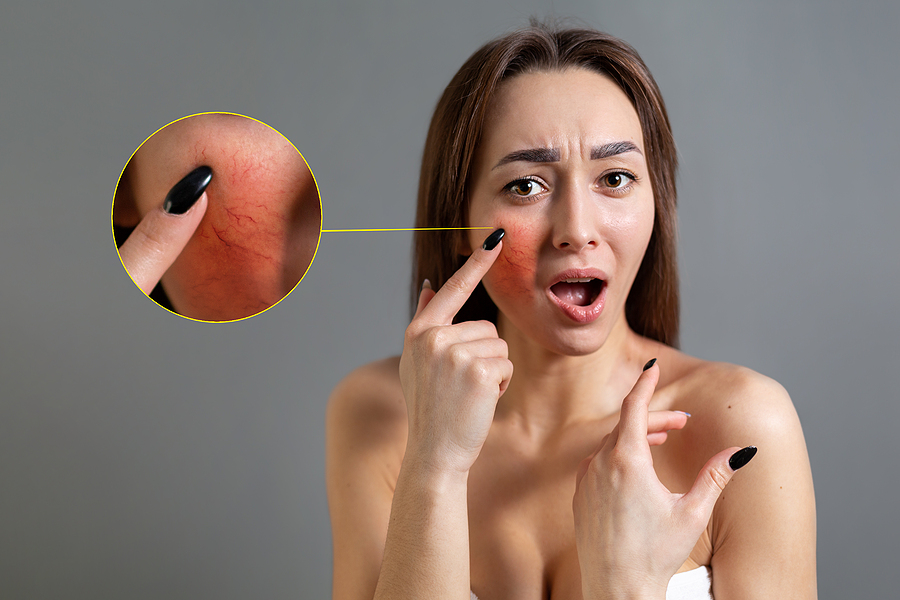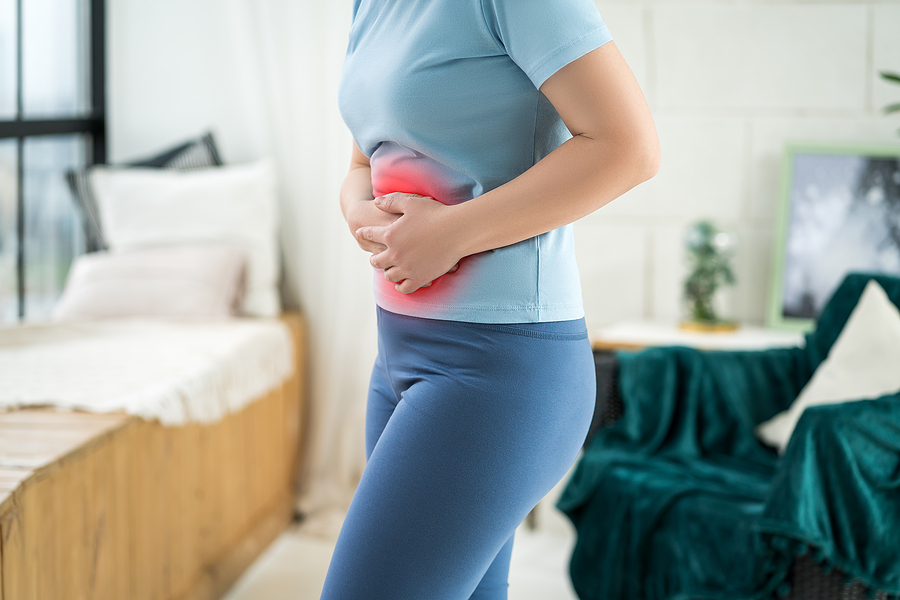When Kim came to see me, she was hesitant to bring up the excruciating pain and other PMS symptoms that were seriously limiting her quality of life every single month. She almost didn’t say anything at all about it because she’d felt so dismissed by other health care professionals.
Even when they sympathized with her plight, they had no solutions or explanation for why her PMS was so much worse than her friends experienced. She was left with the idea, so often perpetuated by our society, that PMS was something she just had to learn to live with. Every month, she found herself missing work, skipping social events, and taking massive amounts of anti-inflammatory drugs just to get by.
Because I spend so much time with patients and dig deep to be sure we aren’t missing anything, I finally got Kim to tell me about her experiences. I could see the relief in her eyes when I told her I understood her plight because I’d been there myself. Finally, someone who didn’t tell her it was “all in her head” and try to push antidepressants or dismiss the symptoms as a normal part of being a woman.
When I told her I thought I could help her reduce and possibly eliminate these symptoms naturally, she wept, thanking me over and over again for taking her seriously.
Why are health care professionals so quick to dismiss PMS as something that can’t be helped? It’s partly because they simply don’t have time (thanks to insurance companies and billing practices) to explore all the reasons women are suffering. And PMS symptoms have become so “normalized” in our society, too many people don’t believe it’s a real problem. Women are accused of being overly dramatic or emotional as if they don’t know their own bodies well enough to understand what’s happening.
I believe that women understand their bodies well enough to know when something isn’t right. And while PMS symptoms are very common – more than 80% of women report having had them at some point in their lives – when they are impacting daily life, they must be taken seriously.
In recent years, a new connection between PMS and inflammation has surfaced that could explain why some women suffer so much during their menstrual cycle. Let’s take a look at hormones, inflammation, and their link to PMS. Then I’ll offer some tips on how to naturally reduce inflammation and relieve those uncomfortable symptoms.
What is PMS?
Women’s bodies send them subtle signals that their menstrual period is on its way. They may feel some tenderness in their breasts, increased irritability, or an intense craving for chocolate. For many women, these are minor irritations that don’t impair the way they are able to function.
For others, the symptoms are more serious. These women have Premenstrual Syndrome (PMS) which, contrary to popular belief is far more intense than a mild cramp or fleeting mood swings. Real PMS is a group of changes – behavioral, emotional, and/or physical – that crop up a week or two before your period and typically disappear once menstruation begins. Approximately 20-30% of women deal with this moderate to severe PMS.
Common physical symptoms of PMS include bloating, cramps (mild or severe), tender breasts, muscle aches, headaches, joint pain and swelling, bowel changes, and acne. Emotionally, women may feel depressed or anxious, cry frequently, have difficulty sleeping, feel overwhelmed or out of control, and experience angry outbursts. And on the behavior side, lack of energy, difficulty focusing, and increased forgetfulness are all common PMS symptoms.
Of course, most women don’t experience all of these symptoms at once – but if severe enough, even one or two can seriously impact daily life.
Hormones, Inflammation and PMS
Although there are no clear answers on what causes some women to suffer from more severe symptoms than others, science is showing us that, both hormones and inflammation have something to do with it. Imbalanced hormones impact health in myriad ways, and the natural fluctuations around the menstrual cycle can become problematic for some.
Both estrogen and progesterone levels rise and fall throughout the cycle. While these changes happen for everyone, some women are more sensitive to the ups and downs. It’s also easy for these fluctuations to be changed or disrupted, leading to more serious imbalances.
Changes to DHEA could also be at play. DHEA, secreted by the adrenal glands, declines naturally as you age. It’s often called the “mother hormone” and is a powerful precursor to the major sex hormones: estrogen, progesterone and testosterone. So, if DHEA levels are too low, other imbalances are almost inevitable.
A large body of research has been conducted around the links between hormonal imbalance and inflammation, and vice versa. One review article examined the ways that hormones impact immune activation. When the immune system is constantly on high-alert, chronic inflammation results.
In recent years, connections have been made between inflammation and severe PMS symptoms. A 2014 paper examined women during their luteal phase, which is about 14 days before their period. Authors found correlation between symptoms of PMS and blood levels of several inflammatory markers.
Another article published in 2016 in the Journal of Women’s Health looked more closely at the relationship of inflammation to PMS symptoms. Using baseline data from the longitudinal Study of Women’s Health Across the Nation, authors did a cross-sectional analysis to determine if high-sensitivity C-reactive protein (hs-CRP), a biomarker of inflammation, was associated with symptoms.
They found that elevated hs-CRP was significantly associated with mood symptoms; abdominal cramps or back pain; cravings, weight gain or bloating; and breast pain. While the format of this study means causation couldn’t be established, the results certainly suggest that preventing inflammation could have a clear impact on severity of symptoms women experience.
The more research we have on the impact of inflammation, the more we realize that chronic inflammation is a major problem. Below, I’ll give you some tips to decrease inflammation, increase hormonal balance, and feel great again – even as your period approaches!
Tips to Decrease Inflammation for PMS Relief
The PMS symptoms women experience are a signal that something’s not right. These signals need to be taken seriously and addressed by more than medications. Here are some natural ways to soothe inflammation and balance hormones naturally.
Boost “good” bacteria in your gut
Your gastrointestinal system has a greater impact on health than you may realize. If this system isn’t balanced, you can’t properly absorb nutrients, and that puts you at risk for increased inflammation.
There are several steps you can take to be sure the healthy bacteria in your gut flourish. Be sure to eat plenty of fiber, which helps feed the friendly bacteria. Add fermented foods and drinks to your diet, such as yogurt, kefir, kombucha, kimchi and sauerkraut. Decrease the amount of red meat you are eating. I also recommend that everyone take a high-quality probiotic to promote healthy gut flora.
A healthy diet is the best medicine
For reducing inflammation, consuming high-alkaline foods can help. Add extra alkalizing fruits, vegetables, lean proteins and high quality fats to your diet. Avoid fried foods, which are difficult to digest – if you like the crispy texture, try an air fryer instead! Avoid processed foods, refined sugars, and grains which often contain far too many additives, preservatives, and artificial colorings and flavoring.
Eat regularly to keep hormones balanced. Three meals and two snacks help keep cravings at bay and stabilize your metabolism.
Decrease consumption of caffeine and alcohol. Try avoiding gluten, as hidden sensitivities are quite common and can create an inflammatory cascade.
Related article: Fighting Inflammation With Food: Changing How You Feel Through What You Eat
Keep moving
Regular aerobic exercise increases endorphins, the natural chemicals in your body which act as painkillers and boost mood. Endorphin levels drop in the second half of your menstrual cycle, so getting enough movement can help keep them at an appropriate level to stave off symptoms. Exercise also helps your body with its natural detoxification process and increases metabolism, both of which can help keep hormones regulated.
Deal with unresolved emotional trauma
Stress is your body’s worst enemy when it comes to hormonal balance and inflammation. And old hurts can increase the stress within – but you might not even know it. When you work to release the tension, you’ve held onto for years, your body can finally relax. This is hard work, and it won’t provide relief overnight – but it’s important work. When changing other habits doesn’t have the impact you’d hoped for, really look at this one. Then find support to help you work through the old trauma, whether from a therapist, trusted friend, or formal healing program. I have seen many women have great success with Emotional Freedom Techniques. The basics can be found online, but I recommend working with a professional if possible.
Find ways to relax and rest
When stress is high, it’s likely that inflammation is also high. Finding ways to release tension and give yourself the time you deserve is essential. Try to find at least 30 minutes every day to do what you want to do, not just what you have to do. Participate in an activity that brings you joy and internal peace daily, whatever that may be.
Be sure you are getting enough quality sleep as well. Sleep is when your body heals itself. Regular sleep deprivation can cause hormones to go haywire, stress to rise, and inflammation to flare. Set a regular routine and do everything you can to stick to it. Relaxation and meditation techniques can be a big help if you have trouble settling into sleep.
Try natural supplements for more support
Sometimes, all the healthy eating and stress relief just isn’t enough, especially if you’ve been dealing with hormonal imbalance and excess inflammation for a long time. You may need some gentle, targeted support to help get you on course. I suggest visiting a functional medicine practitioner to talk about the best supplementation recommendations for your unique situation. A high-quality multivitamin complex is something I recommend to every woman to get them started.
PMS relief IS possible
Kim was eager to try my suggestions, and the next month, she arrived in my office smiling broadly. She’d followed my recommendations, and for the first time in years, her period had come and gone almost unnoticed! Finally, Kim was able to lead the life she wanted without losing a week each month. You can too! For more information on balancing hormones to live your best life, visit my extensive health library.








